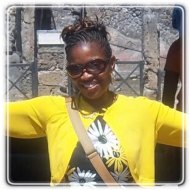 While we supposedly live in a progressing society.
Stereotypes of different groups of people remain and continue to linger in the
world of sports. Robert Nkemdiche, Arizona Cardinals defensive lineman, an Ole
Miss graduate is one of many NFL athletes that doesn’t fit the stereotypical
football player. He has been described as a creative spirit who desires to buy
a panther and maybe start a fashion line, who enjoys playing the saxophone, and
started writing a science fiction book. Yes, it appears that Nkemdiche may not
be the typical NFL player. However, instead of embracing his differences and
creativity, much of the focus on Nkemdiche prior to being drafted centered on
the December 2015 incident that included a fall from a hotel window and the
troubled behavior of his brother who helped raise him, Denzel Nkemdiche.
While we supposedly live in a progressing society.
Stereotypes of different groups of people remain and continue to linger in the
world of sports. Robert Nkemdiche, Arizona Cardinals defensive lineman, an Ole
Miss graduate is one of many NFL athletes that doesn’t fit the stereotypical
football player. He has been described as a creative spirit who desires to buy
a panther and maybe start a fashion line, who enjoys playing the saxophone, and
started writing a science fiction book. Yes, it appears that Nkemdiche may not
be the typical NFL player. However, instead of embracing his differences and
creativity, much of the focus on Nkemdiche prior to being drafted centered on
the December 2015 incident that included a fall from a hotel window and the
troubled behavior of his brother who helped raise him, Denzel Nkemdiche.
Nkemdiche is not alone when facing stereotypes in
professional sports. “The NBA is full of
thugs”, “If a baseball player gets remarkably better in a short period of time,
he’s on steroids”, “All athletes are dumb jocks”, “all NFL players have been
arrested or are on drugs” (Martinez &
Block, 2013) are just a few of the statements or beliefs reinforced in our
society about athletes. Some stereotypes are considered to be positive but are
still rigid in their perspectives. Descriptions such as professional athletes are
"mentally tough, strong, and able to endure" can be just as damaging as negative
stereotypes. Many professional athletes
suffer in silence with mental illness due to fear associated with stigmas and
not meeting some of the positive stereotypical ideas of a player.
Stereotypes and Heuristics
Stereotypes have probably been around since the start of
civilization. Use of them often times helps us to feel secure and in control. In social psychology, a stereotype is a widely
adopted thought about certain types of people or ways of doing things. Stereotypes
are heuristics, mental short cuts, that helps us make sense of the world in a
relatively short amount of time. It is
hypothesized that when a person’s motivation or ability to process information
diminishes, the person relies on heuristics and stereotypes (Bodenhausen, 1990).
Stereotypes can also be the result of
group conflict. The theory postulates that as a result of scarce resources,
hostility results between groups. Therefore, groups in higher socioeconomic classes
may feel the need to protect their resources and may develop hostility towards
those attempting to advance in a lower economic class. Although stereotypes can
be useful in processing information quickly, utilizing them should be
approached cautiously.
What’s the Theory?
While there may be some truth to stereotypes, the problem is
that they are not completely true. Stereotypes are rigid and inflexible. While
many groups of people or members of organizations have similarities, people
also bring with them unique differences and that is what makes one an
individual. When we base our opinions strictly on stereotypes we become biased
and unfair. Use of stereotypes can be damaging and cause a number of social
problems. The self-fulfilling prophecy asserts that people will meet the positive
or negative expectations placed on them especially if others treat them
according to the expectations. Therefore, people would behave according to the
stereotypes placed on them. In addition, the stereotype threat theory
postulates that when one is aware of the negative stereotype placed on them
they will behave in a manner to avoid conforming to the stereotype. Therefore,
if negative stereotypes are present regarding a specific group, group members
may become anxious about their performance and hinder their ability to perform
at their best.
While stereotypes can be beneficial in quickly assessing and
simplifying our surroundings, it shouldn’t be the sole use of reasoning when
dealing with people and situations. Acknowledging and identifying personal
stereotypes may be the first step in tackling biased thinking. Taking the time
to talk and become more acquainted with individuals and letting go of rigid
thinking about certain groups are key to making progress in ridding ourselves
of this behavior.
As for Robert Nkemdiche, for now, he appears unmoved about
what people think of him and his creative outlook on life. He was recently
drafted and fans will be looking forward to watching his NFL career in the
upcoming season. He doesn't appear to care about being different. In fact, he
seems to embrace his uniqueness in a league where being creative and a free
spirit may be frowned upon. He’s not the stereotypical football player. Let’s hope
he stays that way.
References:
Martinez, Block (2013;March) The 20 Biggest Stereotypes in
Sports History Retrieved May 17, 2016
Bodenhausen, G (1990) Psychological
Science September 1990 vol. 1 no. 5 319-322
Wickersham, S (2016; April) The Nkemdiche Prophecy.
Retrieved May 17, 2016
About the Author

Dr. Dawn Crosson
, Psy.DDr. Dawn Gullette Crosson is a native of Philadelphia, PA and received a Master's Degree in Community Psychology from the Pennsylvania State University. She later graduated from the Philadelphia College of Osteopathic Medicine with a Doctorate Degree in Clinical Psychology. She is a licensed Psychologist, trained in Cognitive Behavior Therapy (CBT) and Trauma Focused CBT and has been in the field of psychology since 1996.
Office Location:
845 Sir Thomas Ct
Harrisburg, Pennsylvania
17109
United States
Phone: 717-503-2244
Contact Dr. Dawn Crosson
Professional Website:
www.onepps.com